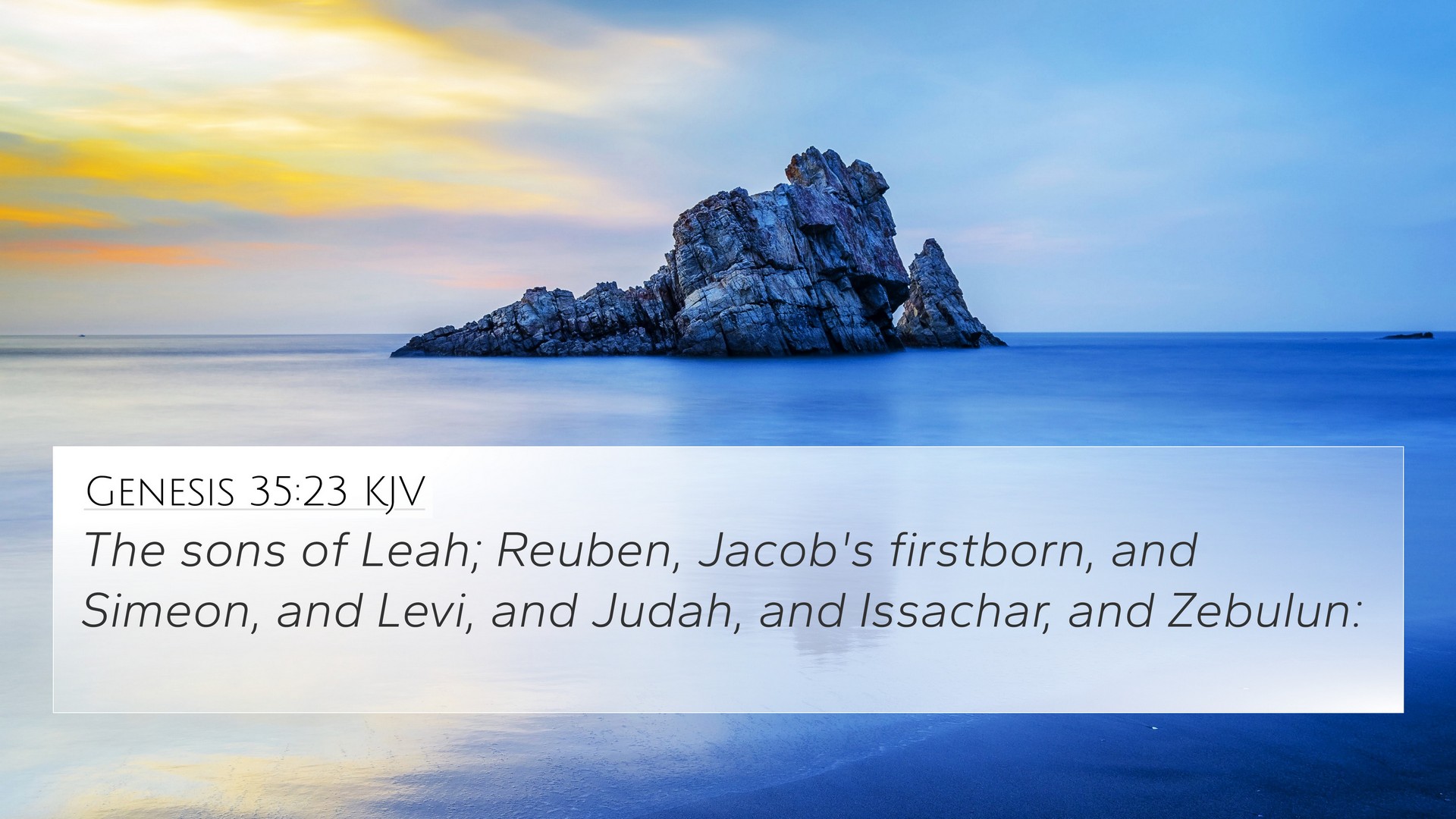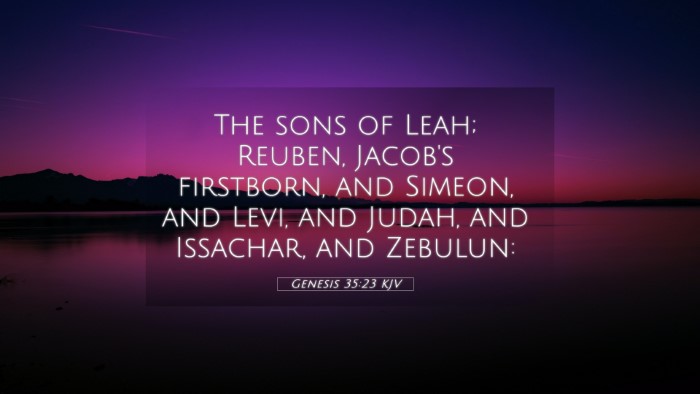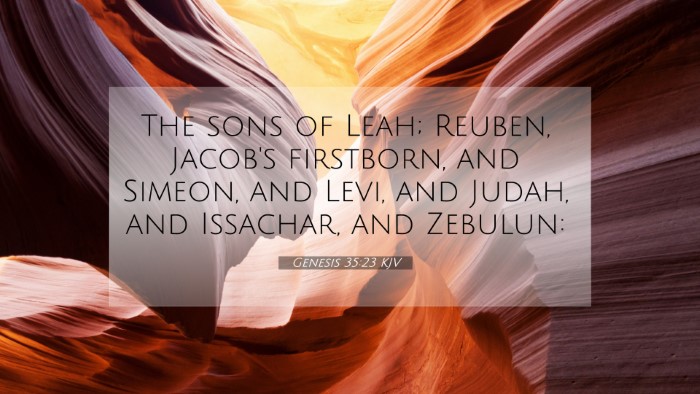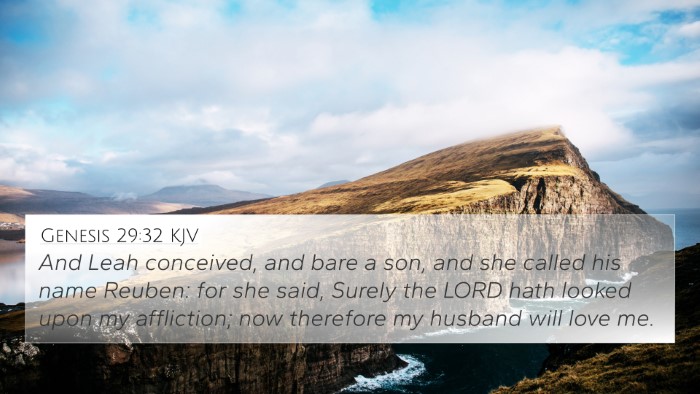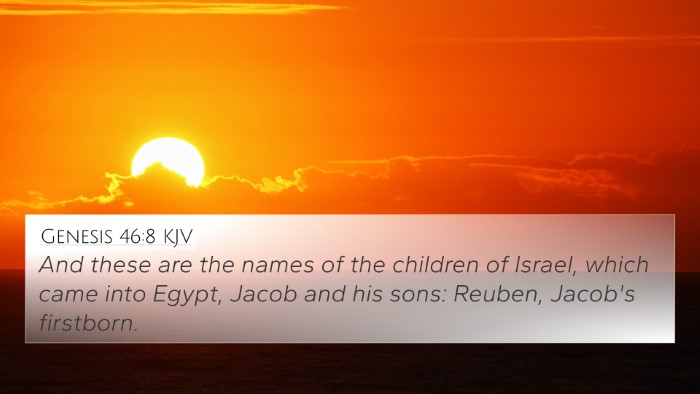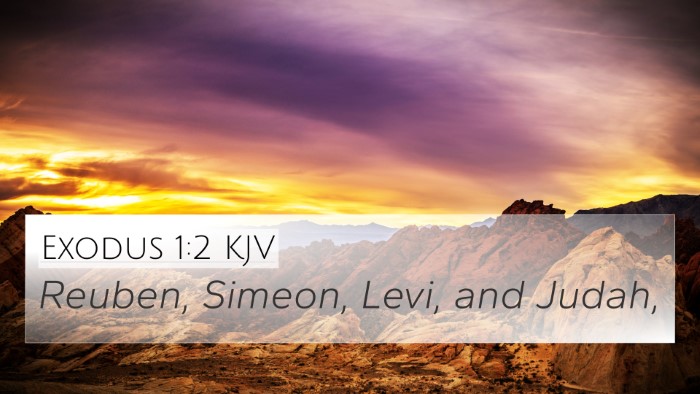Bible Verse Analysis: Genesis 35:23
Verse Context: Genesis 35:23 states, "The sons of Leah: Reuben, Jacob's firstborn, and Simeon, Levi, Judah, Issachar, and Zebulun." This verse lists the sons of Leah, one of Jacob's wives, establishing their lineage and significance within the Israelite tribes.
Meaning and Interpretation
This verse provides vital insights into the family structure of Jacob, emphasizing the importance of inheritance and lineage in the biblical narrative.
Commentary Insights
- Matthew Henry: In his commentary, Henry emphasizes the divine providence in the establishment of Israel's tribes. He notes how Leah's children, despite being born from a place of relational struggle, were integral to God's plan, showcasing the themes of grace and favor.
- Albert Barnes: Barnes focuses on the significance of Reuben as Jacob's firstborn, highlighting the birthright's importance. He explores the implications of birth order among the patriarchs and how it affected inheritance and leadership roles in later biblical narratives.
- Adam Clarke: Clarke notes the fulfillment of God's promise to Jacob regarding his offspring. He illustrates how each son would eventually become a head of a tribe, contributing to the formation of the Israelite nation.
Key Themes
- Divine Sovereignty: The listing of Jacob’s sons reflects God's sovereign plan in shaping the nation of Israel through specific individuals and their descendants.
- Family and Heritage: The verse highlights the importance of family lineage which is crucial throughout the scriptures, particularly in establishing tribal identities.
- Grace in Relationships: Despite Leah’s position as the less favored wife, her sons became significant leaders in Israel, showcasing how God’s grace can elevate the underestimated.
Bible Verse Cross-References
Genesis 35:23 connects with numerous passages that reflect the themes of family, tribes, and God's promises:
- Genesis 29:31-35 - Discusses Leah's bearing of children and her emotional journey.
- Genesis 49:3-4 - Reuben's birthright is mentioned, linking to his future significance and failures.
- Numbers 1:20-23 - Details the numbering of the tribes, beginning with Reuben.
- Deuteronomy 33:6 - Moses blesses each tribe, beginning with Reuben, emphasizing their roles.
- Matthew 1:2-3 - The genealogy of Christ, which includes the lineage of Judah, one of Leah’s sons.
- 1 Chronicles 5:1 - Reiterates the significance of Reuben as the firstborn and his rights.
- Hebrews 7:14 - Jesus' lineage ties back to the tribe of Judah, connecting to Leah and Jacob.
Connections Between Bible Verses
In studying Genesis 35:23, one can identify thematic Bible verse connections that enrich understanding:
- Linking Bible Scriptures: The interplay between Leah's struggle for affection and God’s provision can be compared with the New Testament’s themes of God's mercy.
- Comparative Bible Verse Analysis: Similarities can be drawn between Leah’s story and that of other women in the Bible who faced trials, such as Hannah and Rachel.
How to Use Bible Cross-References
To explore the themes within Genesis 35:23 effectively, one might consider the following:
- Utilize a Bible concordance to identify related verses that share similar themes of lineage and God's promises.
- Engage in cross-reference Bible study to examine how Leah and her children fit within the larger narrative of salvation history.
- Explore detailed cross-reference between Gospels to see how Old Testament figures are fulfilled in the New Testament.
- Identify specific Bible verses related to themes of family and inheritance as seen throughout the scriptures.
Conclusion
Genesis 35:23 is more than a genealogical record; it symbolizes God's intricate weaving of stories, themes, and promises through individuals fulfilling His divine purposes. Through examining cross-references and using tools for Bible study, one can gain a deeper understanding of its significance in the narrative of God's people.
